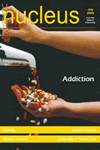In whatever sphere we find ourselves, the effects of drug misuse soon present in one form or another. This may be when sitting with a patient in a clinic or simply on a night out with friends.
It is because of this that Ollie Batchelor set about writing this clear, concise and easy to read book. He heads up a training, advice, help and research in addictions (TAHRA) programme and Use and Misuse: A Christian Perspective on Drugs does exactly what it says on the tin. It is divided into three sections (with interjections from Alice in Wonderland) and outlines both the effects of mind altering substances on this, 'a drug taking planet', along with how Christians should respond to the problem.
The author traces substance use and misuse as far back as the ancient civilisations to the suggested discovery of opium by the Buddha and coffee by Mohammed. He notes the ever changing attitudes of various societies as yesterday's acceptable drugs have, in many cases, become today's controlled substances. For example, Queen Victoria, Sigmund Freud and William Wilberforce were all users of opium.
However, Batchelor avoids some of the sensationalism and mind-numbing statistics often presented with this topic. He also clearly defines the terms and phrases associated with substance use and misuse, providing information about the many drug types and their effects, both positive and negative, from cocaine to alcohol and coffee. He then gives an outline of the reasons that may influence an individual's decision to use a particular substance or not.
The second part of the book focuses solely on the Christian perspective and in particular challenges the notion that substances of misuse are 'a beautiful gift from mother God'. In this section alcohol is also dealt with in a very balanced and controlled manner, using both the Old Testament and New Testament Scriptures. Batchelor tackles a whole range of topics from 'how much is too much?' to 'how does my use affect others?', and makes for some interesting reading!
He concludes with a series of practical ways we can make a difference, applying some of the many lessons found in the book, either as individuals or groups. The page listing organisations to get involved with is particularly useful.
Some people may find the style a little bit too simple, but that aside if you're looking for a book to read or dip into to get a reasonably good grasp of the issue of substance use and misuse, this is a worthwhile read.
Reviewed by Emmanuel Obiabo is a clinical student at Bart's and the London medical school































